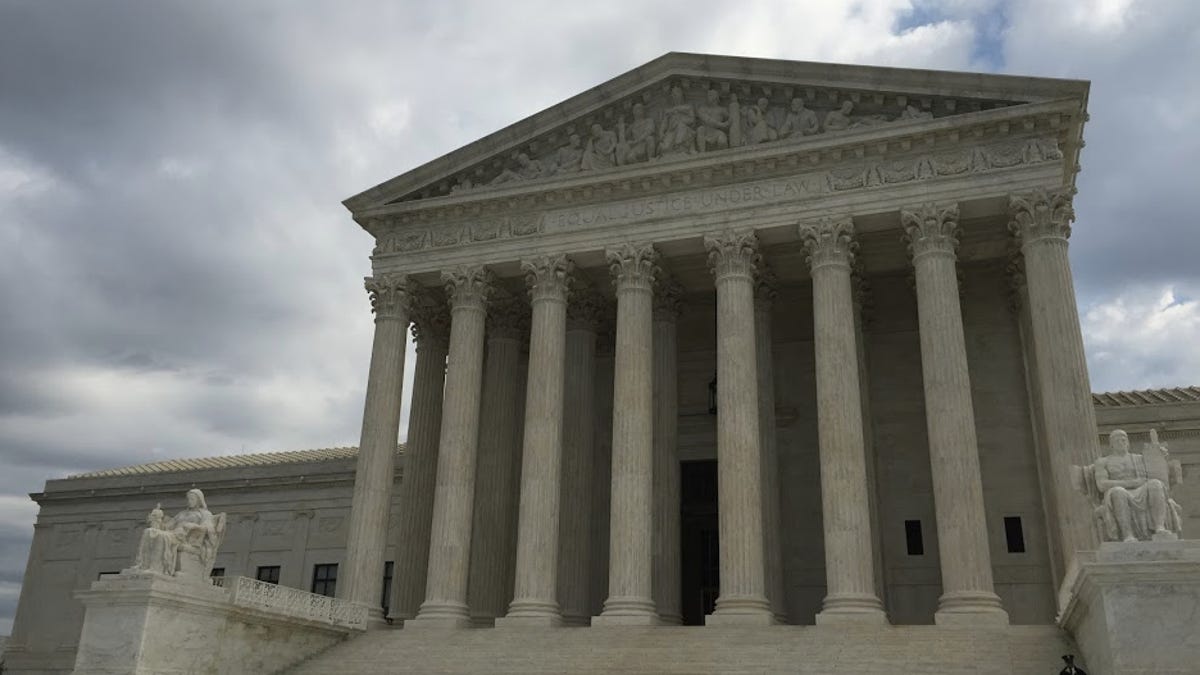Supreme Court strikes debt-collector exception for robocall ban
Thanks to a decision from the high court on Monday, consumers won't have to deal with annoying robocalls to their cellphones from debt collectors.

Debt collectors will no longer get an exemption to robocall your cellphone.
The US Supreme Court on Monday struck down an exception in federal law that allowed debt collectors to use robocalls to automatically dial cellphones.
The Telephone Consumer Protection Act (TCPA) prohibits robocalls made to cell phones without a user's consent. But in 2015, Congress added an exception in the law that allowed debt collectors, who were seeking to recover money owed to the US government or debts guaranteed by the government, to use automated dialers or robocallers to make calls in the hopes of recovering some of the money owed.
The American Association of Political Consultants challenged the law, arguing that it violated the First Amendment. A group of pollsters and the Oregon and Washington state Democratic parties joined the suit.
In its majority ruling, the Supreme Court found that the carve-out for debt collectors was unconstitutional, because it favored debt-collection speech over political speech and other speech. But instead of striking down the entire TCPA, the court ruled that the piece of the law giving the exemption to debt-collectors could be eliminated while keeping the rest of the law in line with a legal concept of "severability."
What this means for consumers is that they will no longer be getting robocalls on their cellphones from debt collectors looking to get repayment for government-backed loans, such as student loans, home mortgages, veteran loans, farm loans, or other small business loans.
Bipartisan support for the decision
Sen. Ed Markey, a Democrat from Massachusetts who helped write the original TCPA, and Rep. Anna Eshoo a Democrat from California, heralded the court's decision as a victory for consumers. The lawmakers have been working on legislation to eliminate the debt-collector exemption from the TCPA.
"The court rightly found that government debt collectors aren't entitled to a special exception to the TCPA's ban on robocalling," Markey and Eshoo said in a joint statement. "The court's decision followed common sense principles: Americans don't want to be harassed by robocalls, and Congress has the authority to stop abusive calls."
Federal Communications Commission Chairman Ajit Pai, who has made fighting unwanted robocalls a top priority for the agency, also applauded the decision.
"The Telephone Consumer Protection Act has long shielded Americans from unwanted robocalls, but the Obama Administration in 2015 snuck in a carve-out for federal debt collectors," Pai said in a statement. "I opposed that decision because, as I said at the time, the federal government should not bestow 'regulatory largesse upon favored industries such as federal debt collectors,' and I called on Congress to reverse course. ... Today, the court found that the last administration's attempt to create a special exemption for favored debt collectors was not only bad policy but unconstitutional. "
FCC Commissioner Jessica Rosenworcel, a Democrat, who usually opposes Pai, also praised the court for its decision.
"Robocalls are OUT OF CONTROL," she said on Twitter. "But today the Supreme Court issued a decision upholding the original Telephone Consumer Protection Act, a law designed to protect us from junk calls. Now let's do something radical. Let's use it to finally stop these calls and the scams behind them."
Robocalls are a big problem
Robocalls have been a growing problem in the US. Illegal callers engaged in scams have taken advantage of Americans amid the coronavirus pandemic by offering nonexistent medical equipment or fake testing kits for COVID-19, the disease caused by the virus.
In addition to the many steps the agency has taken to curb robocalls, the FCC has also launched the COVID-19 Consumer Warnings and Safety Tips webpage to alert consumers to the proliferation of these phone and text scams related to the pandemic. And the FTC recommends that people hang up on or block robocallers.
The FCC voted in March to require all companies that provide phone service to implement automatic call blocking technology to fight illegal robocalls. The agency will give phone and cable companies until June 20, 2021, to comply with the new rules and implement the Shaken/Stir protocol to authenticate the origin of a call and automatically block it if it's from an illegal robocaller.
How the justices voted
Justice Brett Kavanaugh wrote the opinion for the majority. He was joined by Chief Justice John Roberts, Clarence Thomas, and Samuel Alito, who agreed that "the robocall restriction with the government-debt exception is content-based" and is "subject to strict scrutiny." Content-based restrictions on speech are subject to greater legal scrutiny than content-neutral restrictions with respect to the First Amendment.
Justice Sonia Sotomayor agreed with the judgement and issued her own opinion in which she concluded "that the government-debt exception fails under intermediate scrutiny and is severable from the rest of the act."
Justice Stephen Breyer filed an opinion concurring in part and dissenting in part. He was joined by Justices Ruth Bader Ginsburg and Elena Kagan, who said they "would have upheld the government-debt exception, but given the contrary majority view, agreed that the provision is severable from the rest of the statute."
Justice Neil Gorsuch filed an opinion concurring in the judgment in part and dissenting in part.

